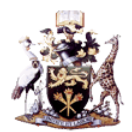Detailed introduction of the University of Nairobi:
Basic Overview
Establishment time: Its history can be traced back to 1956, and it officially became the University of Nairobi in 1970.
Institutional nature: Public comprehensive university.
Geographic location: Located in the center of Nairobi, the capital of Kenya, the campus is distributed in different locations in the city.
School website: https://www.uonbi.ac.ke/.
Historical evolution
In 1947, the colonial government of Kenya planned to establish a technical and commercial institute in the capital Nairobi. In 1949, the plan developed into the concept of providing higher technical education for Kenya.
In September 1951, the Royal Charter was issued to the Royal Institute of Technology. In April 1952, the foundation of the college was laid. In 1954, Gandhi Memorial College was merged into the Royal Institute of Technology. In April 1956, the college began to recruit the first batch of A-level graduates to study technical courses.
On June 25, 1961, the college was renamed Royal College Nairobi, becoming the second university college in East Africa, and established a special relationship with the University of London to train preparatory students for its School of Arts, Science and Technology.
On May 20, 1964, Royal College Nairobi was renamed University College Nairobi, as a constituent college of the Federal University of East Africa.
In 1970, the University of East Africa was dissolved, and the University of Nairobi in Kenya officially became independent and became the first national university in Kenya.
School Strength
Faculty: It has a team of outstanding scholars from all over the world who have profound attainments in their respective research fields.
Curriculum: It offers a variety of undergraduate and postgraduate courses covering agriculture, engineering, medicine, business, law, humanities, social sciences and other fields.
Research Results: It has achieved remarkable research results in the fields of agriculture and medicine. The research center is committed to addressing the health and sustainable development challenges facing Africa and has received support from a number of international research funds.
Educational Philosophy
Vision: To become a world-class university committed to academic excellence.
Mission: To provide high-quality university education and training, and to reflect the aspirations of the Kenyan people and the global community through the creation, preservation, integration, dissemination and utilization of knowledge.
Key laboratories and disciplines
Key disciplines: Agriculture and veterinary medicine, medicine, engineering, business and management sciences and other disciplines have strong strength and influence in Africa.
Laboratories: The school has a number of professional laboratories, such as agricultural research laboratories, medical research laboratories, etc., to support the research of related disciplines.
Faculties and colleges
College of Agriculture and Veterinary Medicine, College of Engineering, School of Business, School of Law, School of Medicine, School of Humanities and Social Sciences, School of Computer and Information, etc.
School rankings
Webometrics ranking: In the 2024 Webometrics World University Rankings, the University of Nairobi ranks 7th in Africa and 1698th in the world.
QS ranking: In the 2024 QS World University Rankings, the University of Nairobi ranks 901st.
THE ranking: In the 2024 THE World University Rankings, the University of Nairobi ranks 1501st.
Cost
Tuition fees: vary depending on the major and course. Generally speaking, undergraduate tuition fees are around US$2,000-5,000 per year, and graduate tuition fees are around US$3,000-8,000 per year.
Living expenses: The cost of living in Nairobi is relatively low. Students' monthly living expenses, including accommodation, food, transportation, etc., are around US$500-1,000.
Campus environment
Architectural style: The campus buildings are beautiful, combining modern and traditional architectural styles, with many modern teaching buildings, libraries, laboratories and other facilities.
Library resources: The school has a total of 12 libraries. The Jomo Kenyatta Memorial Library on the main campus has a collection of 500,000 books, which can provide students with rich book materials.
Computer lab: Equipped with a dedicated computer lab for students to search for information and send messages online.
-

Catholic University of Eastern Africa
-
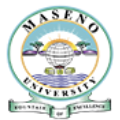
Maseno University
-

St. Paul's University
-
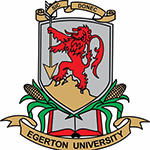
Egerton University
-

Daystar University
-

Laikipia University
-
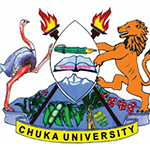
Chuka University
-

KCA University
-
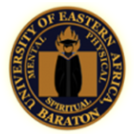
University of Eastern Africa, Baraton
-
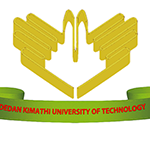
Dedan Kimathi University of Technology
-

Mesoamerican University
-

Istmo University
-

Mariano Galvez University of Guatemala
-

Regional University of Guatemala
-

Galileo University
-

Francisco Marroquín University
-

Rafael Landívar University
-

University of the Valley of Guatemala
-

University of San Carlos of Guatemala
-

Technological Institute of Tlaxcala Plateau
-

Golfo University
-

Technological University of South Sonora
-

Technological University of Huejotzingo
-

Tizimín Institute of Technology
-

Chilpancingo Institute of Technology

